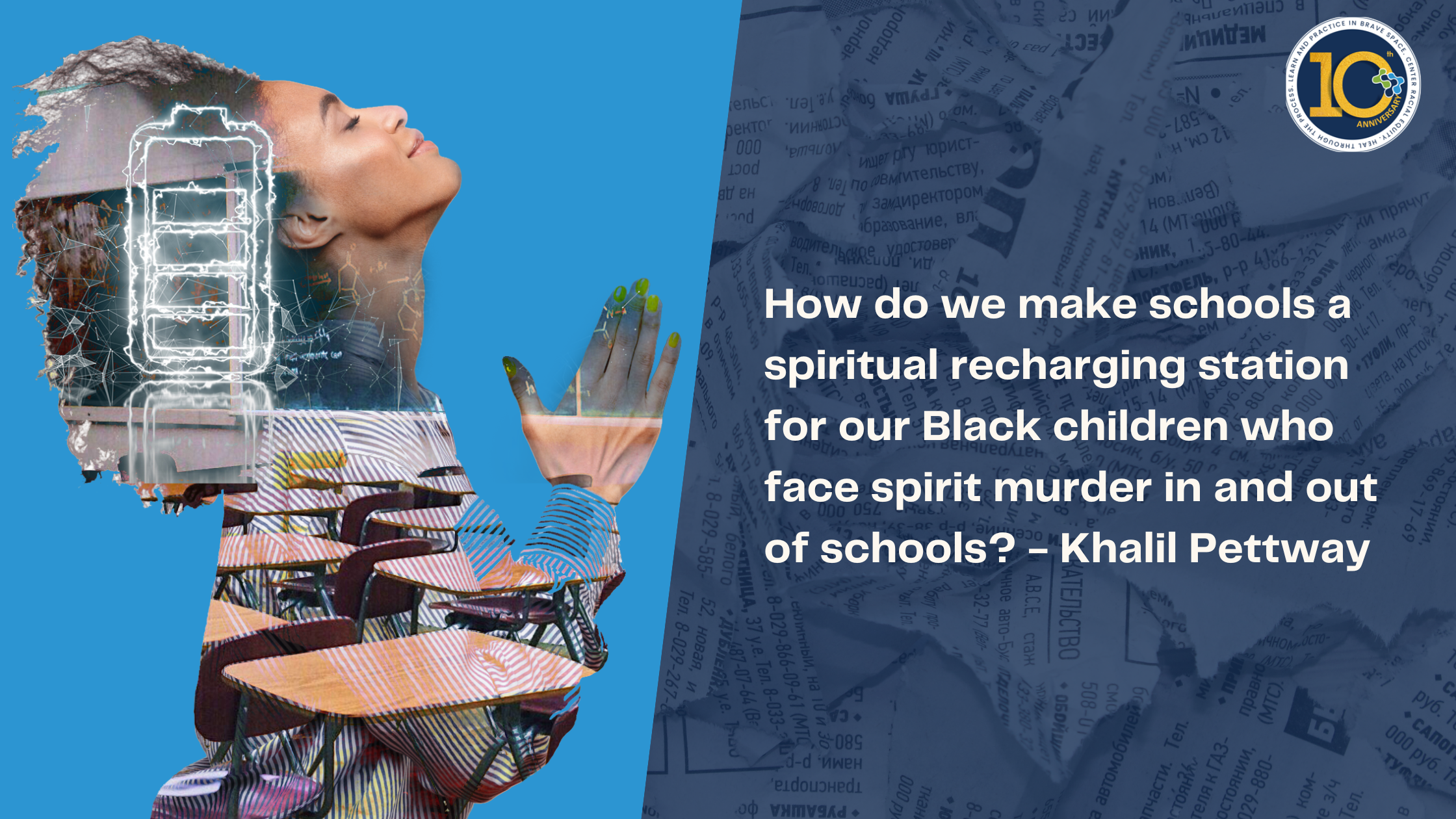The conversations that tend to take place about student safety tend to always center their physical safety; the things that we can see. There are a number of schools who work with social workers if they see students coming to school with signs of physical abuse, punish those who commit harmful acts against their peers, and even the traditional nurse has become the COVID specialist in their respective school sites. In some cases we even see school stuff who are concerned with their students mental health. But what about their spirit?
Before we see physical outbursts kids or the results of mental fatigue, something else often happens first. This is the attack and murder of their spirit. Spirit murder is a concept developed by Patricia Williams where they state that sprite murder is a form of racial violence that brings pain in the form of stealing and murdering the actual humanity of people of color. For me, I realized the first attack on my spirit in 3rd grade when I had my first White teacher. I was no cake walk as a student, but my earlier instructors noticed that I just needed more challenging and relevant work to keep me engaged. Instead, my 3rd grade teacher chose to engage in arguments with me and give me the highest level of punishment for the same actions many of my classmates committed daily. I needed challenge, but not in that way.
My mother rationalized it as me needing to be extra careful with how I carry my self because I was often the tallest and most dark-skinned person in my classes. I knew she was trying to protect me, but I also knew that it was wrong for me to be targeted as such, and that year begun the many years of me retreating into a smaller version of myself. My spirit was slain.
I was fortunate enough to have people in my life to recharge my spirit while I spent time in school. Unfortunately, that is not the case for many children, especially Black children in the US. These children often lose sight of themselves, they fall into the background, look for acceptance in the darkest places, which lead some to make decisions that cost them their lives. How do we stop this? How can schools refrain from being complicit in the assassination of young Black children and become spiritual recharging stations?
No, this is not asking that we force prayer or spiritual practices on Black students, but it may be worth investigating how allowing children to participate in their own spiritual practices can create an environment which promotes an energizing environment. Many school staff see students more than their own families do, so I believe I would be beneficial for school staff to fully invest in the student as a whole person. Who are they, why are they the way they are, what drives them, what is dangerous to them? These are just a few questions that we can ask and if we invest time in securing these answers, just maybe we can begin to transform schools across the nation into institutions where students can leave behind the troubles they face out of the school house, and enter into a center of education and healing so that they return to their communities with th minds and spirits ready to face the struggles of our world.
By, Khalil Pettway


